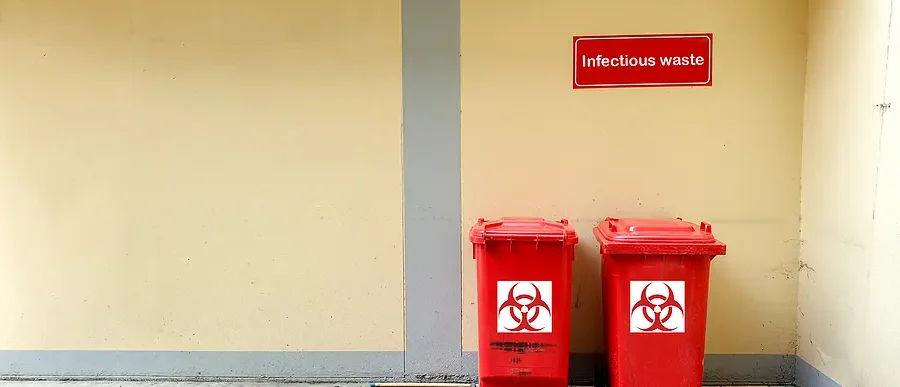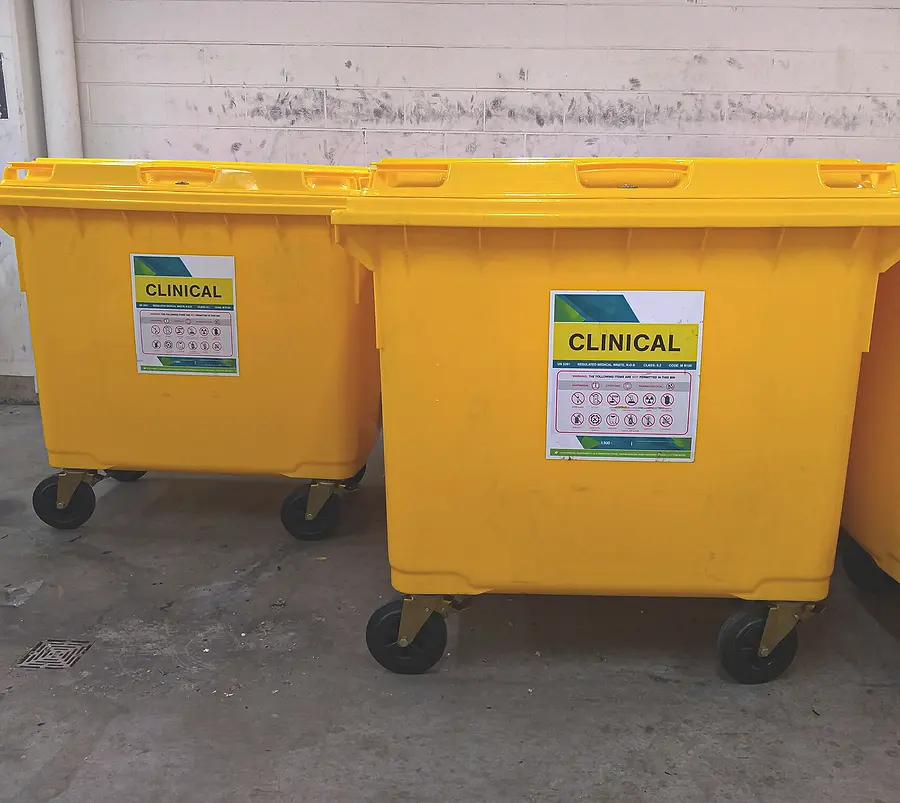Medical Waste Storage Requirements

Medical waste management is a critical aspect of healthcare operations, encompassing the proper handling, storage, and disposal of materials that could pose health risks if not managed correctly. Among these considerations, medical waste storage requirements are particularly demanding to safeguard against potential hazards to public health and the environment. Understanding and adhering to these regulations is necessary for healthcare facilities to mitigate risks and maintain compliance.
Categorization
First and foremost, it’s essential to categorize medical waste accurately. Medical waste encompasses a broad spectrum, including sharps, infectious waste, pathological waste, pharmaceutical waste, and more. Each category requires specific handling and storage procedures to minimize the risk of exposure and contamination. Proper segregation ensures that potentially hazardous materials are stored appropriately, preventing cross-contamination and facilitating efficient disposal processes.
The Resource Conservation and Recovery Act (RCRA) sets forth guidelines for properly handling, storing, and disposing of hazardous waste, including medical waste. Additionally, the Occupational Safety and Health Administration (OSHA) establishes standards to protect healthcare workers from occupational exposure to bloodborne pathogens, which includes requirements for safe medical waste handling and storage practices.
Storage Containers

Next, healthcare facilities must adhere to regulations regarding storage containers. The CDC outlines the requirements for medical waste containers. The containers used for medical waste storage must be leak-proof, puncture-resistant, and labeled appropriately to indicate the contents and associated hazards. Secure lids prevent spills and exposure, while durable construction ensures containment during handling and transportation. Additionally, containers should be easily accessible for staff members tasked with waste management responsibilities.
The DOT regulates the transportation of medical waste. Medical facilities must comply with DOT regulations when packaging, labeling, and transporting medical waste off-site for treatment or disposal. Packaging regulations vary depending on the type of medical waste it is. In addition, the FDA regulates sharps containers. An FDA-approved sharps container is made from rigid plastic and comes marked with a line that indicates when the container is full and ready for disposal.
Designated Storage Areas
Temperature control is another critical consideration in medical waste storage. Certain types of medical waste, such as biological materials, may require refrigeration to maintain integrity and prevent the generation of harmful pathogens. Proper temperature monitoring and control mechanisms are essential to ensure compliance and mitigate the risk of contamination or spoilage.
Moreover, healthcare facilities must establish designated storage areas for medical waste. These areas should be segregated from other operational areas to prevent accidental exposure and contamination. Adequate ventilation and lighting are essential for maintaining a safe and hygienic environment, while restricted access helps prevent unauthorized personnel from tampering with or mishandling medical waste.
International Health Facility Guidelines
The International Health Facility Guidelines (iHFG) is the encyclopedia for the design of healthcare facilities. It covers all health facility types and sizes. Part B covers health facility design, including the storage areas for medical waste. Below are some examples from the full list of requirements.
Clinical Waste
The storage space should be well-lit and ventilated, located away from food preparation, general storage, and routes used by the public. It should have separate storage areas for sharps containers, and anatomical and pharmaceutical waste. The room should be kept locked when not in use and secure from entry by animals, insects, or rodents. It should have clear warning signs on the door as well. Pathological and medical waste should ideally be picked up once a day but at least every 48 hours. Healthcare facilities can also freeze and store pathological waste for less than one week, but always be double bagged.

Refrigerated Storage
Keep pathological, medical, clinical, and food waste in separate refrigerated storage rooms. These refrigerated rooms should be no more than 60 degrees Fahrenheit.
Radioactive Waste
Small quantities of radioactive waste can be stored in containers in the Hot Lab. Large facilities may have a separate storage room for larger quantities.
Inspection and Maintenance
Routine inspections and maintenance are integral components of effective medical waste storage management. Regular checks ensure that storage containers remain intact and secure, with no signs of damage or degradation that could compromise containment. Address any issues or concerns promptly to prevent potential hazards and maintain compliance with regulatory standards.
Responsibly Manage Your Medical Waste With Medical Waste Pros
As a leading provider of medical waste disposal services, Medical Waste Pros understands the importance of compliance and accountability in healthcare waste management. Our comprehensive solutions encompass every aspect of medical waste handling, from collection and storage to transportation and disposal. With state-of-the-art facilities and industry expertise, we ensure that healthcare facilities meet regulatory requirements while promoting environmental stewardship and public health.
Contact us today at (888) 755-6370 or fill out the form to learn more about our tailored waste management solutions. Discover how we can help your facility streamline operations, minimize risks, and uphold the highest standards of safety and compliance. Together, we can make a difference in healthcare waste management and create a healthier, more sustainable future for all.










